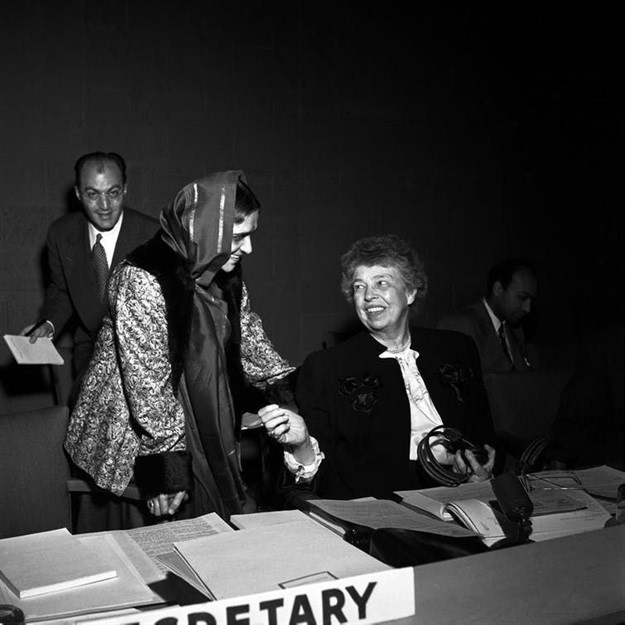
Top stories






More news


Marketing & Media
Ads are coming to AI. Does that really have to be such a bad thing?














Some people think that human rights should not be universal. And some critics believe that human rights are an example of Western cultural imperialism. They claim that non-Western countries did not participate in drafting the Universal Declaration. Yet non-Western countries have been involved since the earliest stages in drawing up human rights documents.
However, all countries can be quite hypocritical when it comes to applying the laws they agree to.
Other critics argue that human rights promote selfish individualism. Instead of caring for the family or community, people only care for their own rights. But in countries like Canada where human rights are, for the most part, legally respected, citizens follow these laws because they do have a sense of community and care for each other. Housing advocates, food bank workers and millions of volunteers help make human rights “work” on the ground.
Yet others claim that as China and other non-democratic countries become more powerful, human rights will be less important internationally. It is true that such countries do work to undermine many human rights, at home and at the UN. But that makes human rights more relevant, not less. We all need protection against abusive governments.
Human rights are still relevant and new rights are evolving.
One sign of progress is in LGBTQ rights. This topic is difficult to discuss internationally, because some places, especially but not only Russia and countries in Africa and the Middle East, still have laws that prohibit homosexuality. Some religious groups, in the Western world as elsewhere, are also homophobic. We don’t yet have an international declaration on LGBTQ rights, but the UN is paying more attention to them.
In the last 20 years, much attention has been paid to “collective” human rights. These are rights than belong to groups of people and that one individual can’t exercise if others can’t also exercise them.
Indigenous rights are collective rights. Indigenous ways of life, languages, religions, cultures and land bases are threatened. In 2007 the UN passed UNDRIP, the United Nations Declaration on the Rights of Indigenous Peoples. Canada voted against the Declaration, but later reversed its position. By 2016 the government declared its full support for UNDRIP.
A collective right that affects everyone everywhere is the right to a clean and healthy environment. This includes the right to protection against climate changes that undermine our livelihoods and well-being.
Another collective right is the right to peace. Viewed narrowly, this is the right not to live in a state of war. In 2018, many people still live in war-torn countries, especially countries in the Middle East and parts of Africa. Others, in the Ukraine, live in fear of war. And we all live in fear of nuclear war.
Both climate change and war create huge refugee populations. By 2050, it’s thought, there will be 200 million “climate refugees” fleeing rising sea levels. Add to that the refugees who are fleeing large-scale crime, like the migrant “caravan” currently trying to enter the United States.
The UN recently agreed on a Global Compact for Migration, setting out voluntary principles meant to save lives and ensure successful migrant integration into new countries without unduly burdening social infrastructure such as health care. But the real challenge is to ensure people don’t have to leave home at all.

One way to ensure more people can live in their homes is to develop economies. The right to economic development is a collective right. Development activists usually try to reduce both poverty and inequality. There’s been an enormous reduction in world poverty over the last 25 years, even as inequality has been growing in most countries.
This means it’s easier to fulfil what is known as economic human rights, such as rights to health, education and housing. Very little of this change results from foreign aid; most is a result of the spread of market economies.
Many people in many countries have benefited from globalization, though others, such as industrial workers in Canada and the U.S., have lost their jobs. This is one of the reasons for the spread of anti-immigrant, xenophobic sentiments in the Western world.
Unless we can figure out a way to control these sentiments and reduce the need for people to flee their own countries because of war, crime, economic challenges and climate change, we are facing an uneasy human rights future.
This article is republished from The Conversation under a Creative Commons license. Read the original article.![]()

The Conversation Africa is an independent source of news and views from the academic and research community. Its aim is to promote better understanding of current affairs and complex issues, and allow for a better quality of public discourse and conversation.
Go to: https://theconversation.com/africa